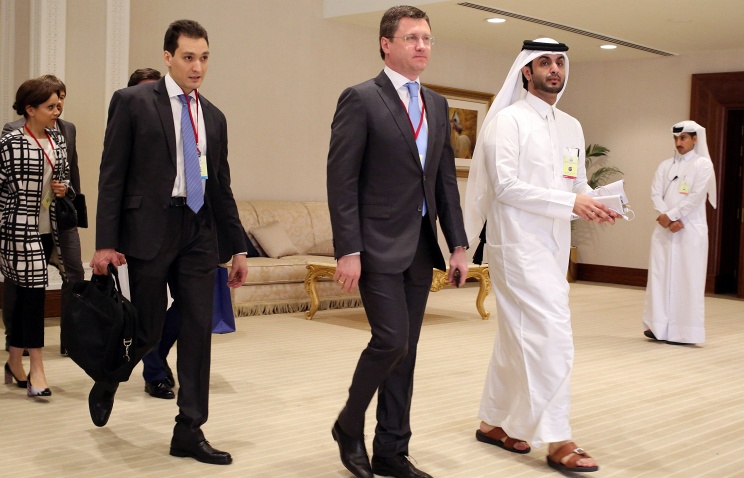Russia is ready to take part in a regular meeting to discuss oil production freeze, Russian Energy Minister Alexander Novak said.
“Countries not making part of OPEC, in particular, Russia, will be ready to consider the possibility of participation in a regular meeting [on oil production freeze] if such agreements are reached,” Novak said.
“We believe that the door is not closed and there will be opportunities to additionally hold relevant consultations,” he said.
Novak said the sides agreed that the Organization of the Petroleum Exporting Countries will hold additional consultations with countries that did not take part in today’s talks. This will be done prior to the OPEC summit in June.
Oil producer states, which are members of the Organization of the Petroleum Exporting Countries (OPEC), as well as those states, which are not members of the organization, met on Sunday, April 17 in Doha, Qatar, to discuss stabilization of oil prices. The countries failed to reach an agreement.
Azerbaijani Energy Minister Natig Aliyev told TASS earlier that a draft of the oil producer countries’ agreement envisions a freeze of production until October at the level of January 2016.
Delegations from 18 countries came to the capital of Qatar for the meeting. The 19th participant of the talks, Iran, refused to discuss oil production freeze before the meeting, explaining it by recently lifted sanctions. That is why representatives of the Islamic Republic did not go to Doha.
As a result, the discussion, which should have started at 10:00 a.m. (the time coincides with the Moscow Time) and lasted 1.5 hours, began after 15:00 as Saudi Arabia demanded that changes be introduced in the draft deal. According to Reuters sources, the talk was about the necessity to sign the document by all countries members of OPEC.
Optimism about possible agreement on oil production freeze shrinking
Russian Energy Minister Alexander Novak said following talks in Doha that cooperation on oil production freeze might be resumed but possibilities for that are shrinking due to differences between the sides.
“Possibilities do exist. But as for reaching agreements, well, judging by today’s heated debates, taking into account Iran’s position, we will not be that optimistic about such agreements,” he said.
Novak added that the absence of an agreement will not have consequences for Russia.
“I believe that for Russia this will have no consequences as our companies keep working with a high competitiveness on the market. We believe that the market situation should balance demand and offer,” he said.
The minister noted that Russia takes positions of the OPEC countries on possible oil production freeze agreement with understanding.
At the same time, he noted that a number of OPEC member states changed their positions on the issue of oil production freeze, and the sides were unable to reach an agreement at the meeting in Doha.
Novak said that Iran’s position was not the key cause of the failure at the Doha talks to reach an oil production freeze deal.
“How can a country that did not take part in the meeting be a reason for a failure to reach agreements? It didn’t even take part in today’s discussion,” he said.
Novak said the demand that third countries that were not present at the Doha meeting take part in the freeze agreement was incorrect.
He said the absence of agreements on freeze will not affect the change of oil production volumes in Russia as the state does not regulate such issues in companies’ activity.
Novak said Russia will watch the positions of OPEC member countries which are first to reach agreement on oil production freeze inside the organization.
“Prospects and expectation were that we will be able to reach agreement… On the other hand, consultations will be continued. We shall see which decision is taken by OPEC member countries, whether they are able to reach agreement between themselves that they all must take part in the freeze of oil production,” he said.
Novak said that in the absence of agreements, the oil market will balance by mid-2017, while with the freeze it would happen three months before.
